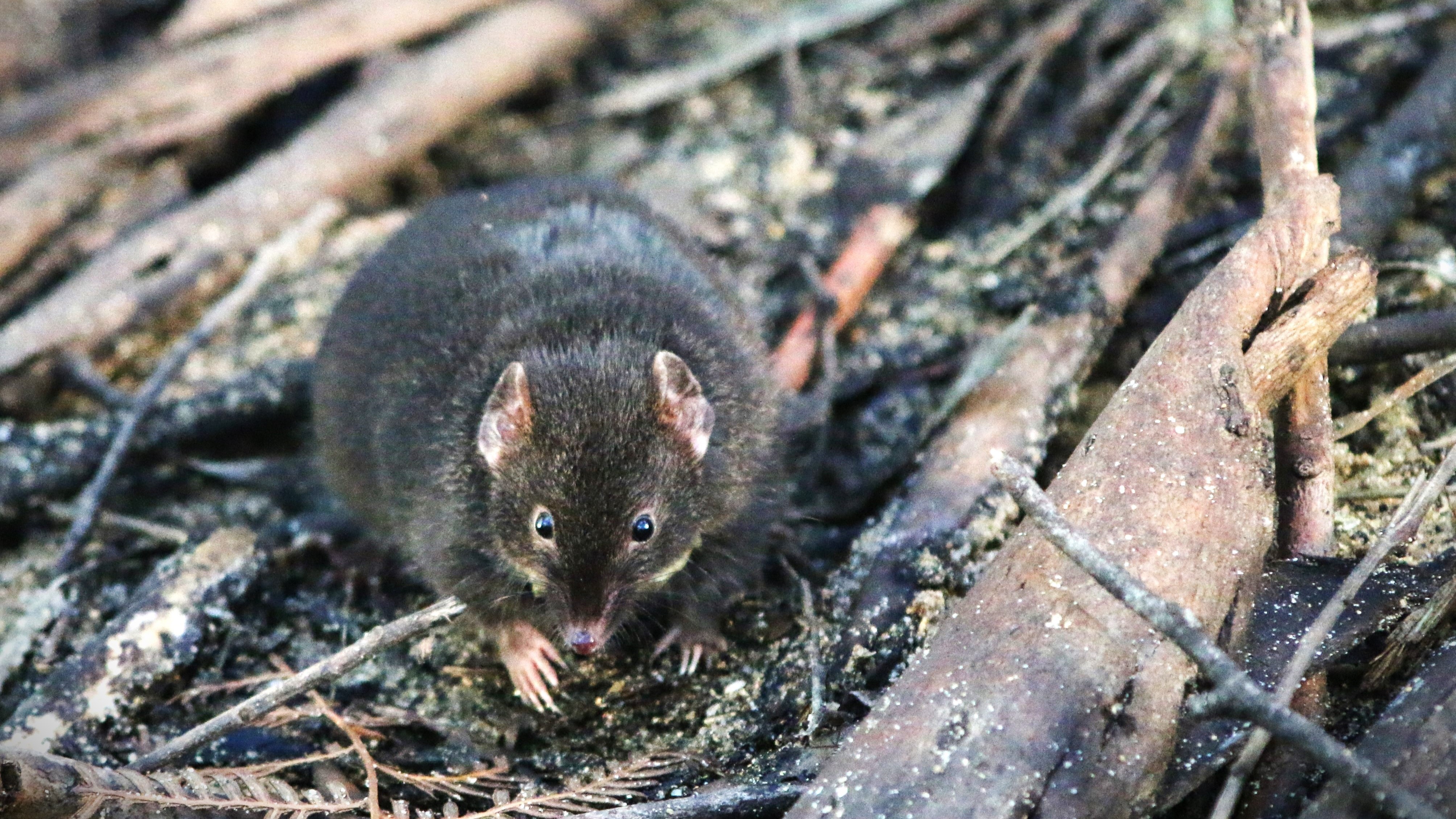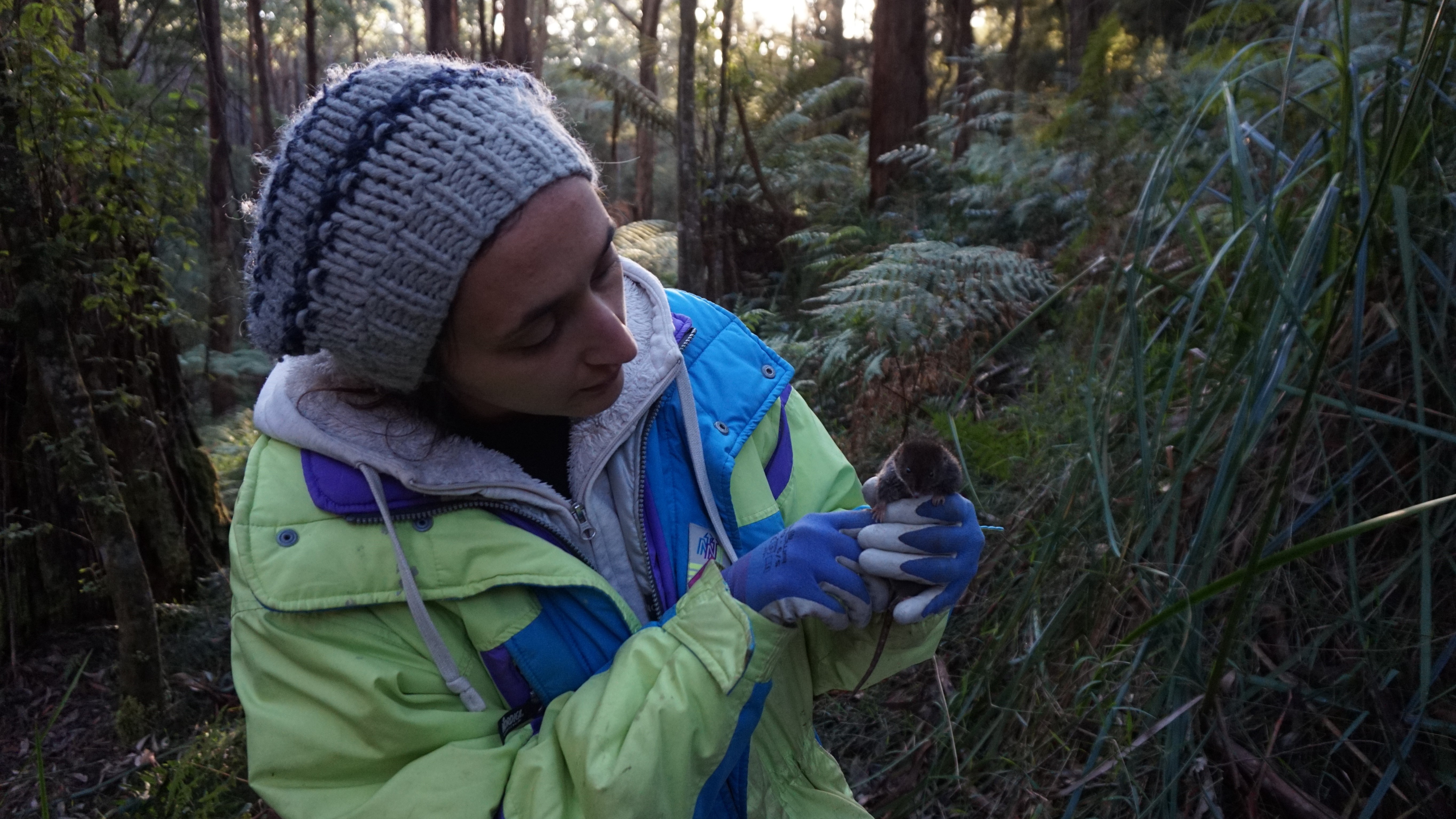
Male antechinuses live through just a single, extremely intense mating season. So to maximize their chances at sex, these little carnivorous marsupials waste as little time on sleep as possible, new research has found.
During a three-week breeding period, males belonging to two species — dusky (Antechinus swainsonii) and agile (A. agilis) antechinus — lost an average of three hours of sleep every night, or around 20% of their total sleep. "This level of sleep loss would make humans perform very poorly," lead author Erika Zaid, a graduate researcher in sleep eco-physiology at La Trobe University in Australia, told Live Science in an email. "Yet, antechinus endured doing so for three weeks."
Males sacrificed sleep to mate with as many females as possible and father a maximum number of offspring before dying, Zaid said.
In the wild, male antechinuses drop dead in a single "programmed" event following the mating period. Males often survive for longer in captivity, Zaid said, but they become sterile. In the new study, published Thursday (Jan. 25) in the journal Current Biology, 2 captive males out of 10 died at the end of the breeding season. "They died in the same night, only [a] few hours apart," Zaid said.
Recent research suggested male marsupials of the dasyurid family — which live and reproduce for only one year and include antechinus — died due to extreme sleep deprivation, based on the observation that severely sleep-deprived laboratory rats eventually die of exhaustion.
However, Zaid thinks this may not be the case with antechinuses. "After the breeding season, antechinus males do develop skin lesions and fur loss that resemble those observed in sleep deprived rats," Zaid said. "However, we don't think sleep loss is the cause of the male die-off," because the two males that died weren't the most sleep-deprived.
Related: 'They mated like mad': Low-flying helicopter sparks massive crocodile orgy in Australia
Another theory is that male antechinuses die from a surge in testosterone and corticosteroid levels during the mating period, which can induce organ failure and leave males more susceptible to infections and parasite infestation, according to the study. But no such surge has been detected in males northern quolls (Dasyurus hallucatus) — another dasyurid species — prompting the researchers to think another, unknown trigger causes male antechinuses to die off.

Unlike the males, female antechinuses survive for up to two years and can give birth to two litters. They might even benefit from the males dying en masse, as the corpses may provide a rich and abundant source of food to fuel their pregnant or lactating bodies, according to a study published Jan. 18 in the journal Australian Mammalogy.
The study described a sighting of a mainland dusky antechinus (A. mimetes) eating a dead member of its species in New England National Park, New South Wales, suggesting these critters indulge in cannibalism.
While cannibalism has been documented in some dasyurids, it is very rarely seen in the wild, Andrew Baker, an author of the Australian Mammalogy paper and an associate professor specializing in Australian mammals at the Queensland University of Technology in Australia, said in a statement.
Zaid and her colleagues housed the antechinuses used for their study in individual enclosures and therefore didn't observe any cannibalism. "I guess cannibalism is a good strategy they might adopt to have easily accessible energy," Zaid said. But Baker and colleagues could not identify the sex of the cannibalistic antechinus, meaning it could have been a male eating another male, she said.
Much remains to be learned about antechinuses — including the details of their cannibalistic tendencies and how males cope with extreme lack of sleep during the mating season.
It may be that antechinuses feel the negative effects but simply get on with it, or that these critters are resilient to sleep deprivation, the researchers said in a statement shared with Live Science.







